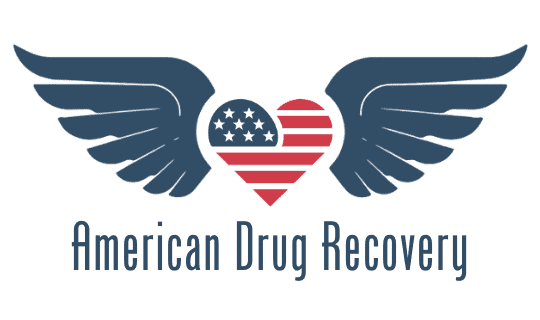Summary
Peer support in addiction recovery offers numerous benefits, including emotional support, motivation, and skill development. This article explores how peer support enhances recovery outcomes, the various types of peer support services available, and the importance of integrating peer support into treatment programs. American Drug Recovery provides comprehensive addiction treatment that includes peer support.
Key Takeaways
- Understanding Peer Support in Addiction Recovery – Definition and role.
- Benefits of Peer Support – Positive impacts on recovery.
- Types of Peer Support Services – Various support options.
- Role of Peer Workers and Mentors – Importance of peer roles.
- Implementing Peer Support in Treatment Programs – How to integrate peer support.
Introduction
Peer support plays a crucial role in addiction recovery, offering numerous benefits for individuals struggling with substance use disorders. American Drug Recovery emphasizes the importance of peer support in enhancing recovery outcomes.
Understanding Peer Support for Addiction Recovery
Definition and Role
Peer support involves individuals with lived experience of addiction providing guidance and support to others in recovery. It is a critical component of substance use disorder treatment, helping people feel understood and supported by those who have faced similar challenges. Peer support services can include one-on-one mentoring, support groups, and community-based programs that foster a sense of belonging and shared purpose.
Benefits of Peer Support for Addiction Treatment
Positive Impacts on Recovery
Peer support offers numerous benefits, including:
- Emotional Support: Provides a sense of belonging and understanding. People in recovery often feel isolated; peer support helps mitigate these feelings by connecting them with others who have similar experiences.
- Motivation: Encourages persistence in the recovery process. Knowing that others have successfully navigated the path to sobriety can be incredibly motivating for those currently struggling.
- Skill Development: Helps in developing life skills and coping strategies. Peer support can teach practical skills for managing stress, avoiding triggers, and maintaining a healthy lifestyle.
Enhancing Mental Health
Peer support also significantly improves mental health, reducing feelings of isolation and promoting overall well-being. The shared experiences create a strong bond that fosters a supportive environment. This can lead to better mental health outcomes and a reduced risk of relapse.
Types of Peer Support Services
Various Support Options
Peer support can be provided in different forms, including:
- Support Groups: Such as Alcoholics Anonymous and other recovery groups. These groups offer a structured environment where individuals can share their experiences and support each other.
- One-on-One Mentoring: Personalized guidance from a peer worker or mentor. This can provide more tailored support and direct advice.
- Community Support: Engaging with a recovery community for ongoing support. This can include social activities, educational workshops, and other community-based initiatives that help reinforce recovery principles.
Role of Peer Workers and Mentors
Importance of Peer Roles
Peer workers and mentors play a vital role in addiction treatment by:
- Providing Guidance: Sharing experiences and offering practical advice. They can help navigate the complexities of recovery and provide insights that professionals may not be able to offer.
- Building Trust: Creating a safe space for sharing sensitive information. Trust is crucial in recovery, and knowing that their mentor has been through similar struggles can make it easier for individuals to open up.
- Encouraging Engagement: Helping individuals stay committed to their recovery journey. Regular check-ins and encouragement from peer mentors can keep individuals motivated and focused on their recovery goals.
Implementing Peer Support in Treatment Programs
Integrating Peer Support
Integrating peer support into treatment programs involves:
- Training Peer Workers: Providing formal training to ensure effective support. This ensures that peer workers have the skills and knowledge to support others effectively.
- Creating Support Networks: Establishing groups and mentoring systems within treatment centers. This creates a structured approach to peer support, making it more accessible and effective.
- Collaborating with Health Services: Working with behavioral health and mental health services to offer comprehensive care. This holistic approach ensures that all aspects of an individual’s recovery are addressed.
Conclusion
Peer support is a powerful tool in addiction recovery, offering emotional, motivational, and practical benefits. At American Drug Recovery, we integrate peer support into our treatment programs to enhance recovery outcomes. For more information on our services, contact us at 866-338-5779.
FAQs
What is peer support in addiction recovery?
Peer support involves individuals with lived experience of addiction offering guidance and support to others in recovery.
How does peer support benefit addiction recovery?
Peer support provides emotional support, motivation, and skill development, enhancing overall recovery outcomes.
What types of peer support services are available?
Services include support groups, one-on-one mentoring, and community support.
What roles do peer workers and mentors play in recovery?
Peer workers and mentors provide guidance, build trust, and encourage engagement in the recovery process.
How can peer support be integrated into treatment programs?
Integration involves training peer workers, creating support networks, and collaborating with health services.
Resources
https://www.ncbi.nlm.nih.gov/pmc/articles/PMC8524681/
https://www.ncbi.nlm.nih.gov/pmc/articles/PMC5047716/
https://www.samhsa.gov/brss-tacs/recovery-support-tools/peers









